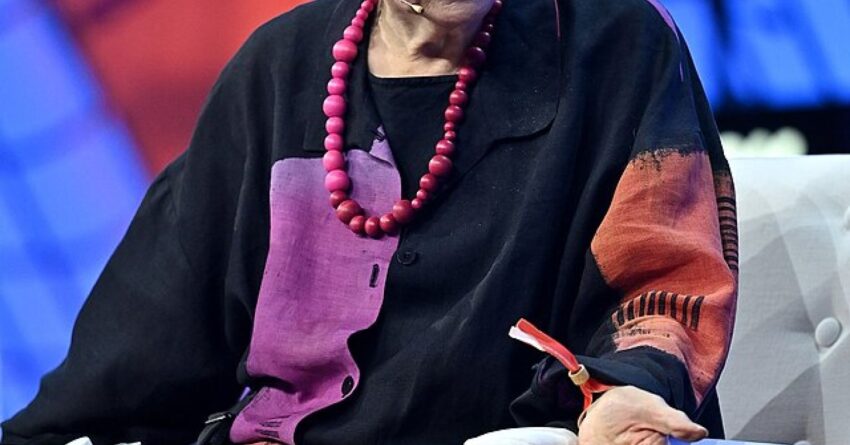The Testaments, Margaret Atwood’s sequel to her famous novel The Handmaid’s Tale, presents its main narrative as personal accounts of three characters: a formidable Aunt and the two daughters of the first book’s protagonist, Offred (named June in the Hulu TV series). In one such testament, the younger daughter recounts her personal story.
She was called Nicole at birth in Gilead and grew up under the name Daisy in Canada. Her birth mother and she are two of Gilead’s most wanted: Gilead wants to hang the mother and boast of the daughter’s return if they can find her.
Until a car bombing kills the surrogate parents who have kept the girl hidden, she does not know she has ever been anyone other than Daisy. The parents, who had planned to tell her soon, are gone before she finds out.
A counselor should not only consider which symptoms and changes have appeared in her since the bombing but also distinguish them from any troubles Daisy had beforehand. Overall, she seems to be a healthy teen despite her overprotective foster parents limiting her social life. Shortly before their loss, though, Daisy starts a new habit that might suggest anxieties she hesitates to reveal.
By this time I was feeling glum, which is one of the effects a birthday can have: you’re expecting a magic transformation but then it doesn’t happen. To keep myself awake I pulled hairs out of my head, in behind my right ear, just two or three hairs at a time. I knew that if I pulled out that same hair too often I risked creating a bald spot, but I had only begun this habit a few weeks before.
Trichotillomania, compulsive hair-plucking, appeared under the Diagnostic and Statistical Manual of Mental Disorders (DSM) category of impulse-control disorders (American Psychiatric Association, 1994) until advances in understanding it and other conditions led to its inclusion in a new category, obsessive-compulsive and related disorders (American Psychiatric Association, 2013). Some researchers have come to think of it less as acting impulsively and more as a full compulsion (an action the person repeatedly feels compelled to perform), more akin to symptoms seen in obsessive-compulsive disorder (Phillips, 2017). The recategorization is controversial (Fukuda et al., 2023; Lamothe et al., 2020).
Clearly, Daisy shows the behavior. Half-sister Agnes (the novel’s version of TV’s Hannah) is dismayed to witness her “pulling hairs out of the back of her neck. She said this helped her think.” There may be some truth to that assertion.
Pain can distract a person from extraneous stimuli or thoughts, and then the increased effort to think about central cues distracts from pain and focuses attention. Endorphins, the nervous system’s endogenous painkillers, in tiny amounts might help her focus by further reducing attention to outside stimuli (Davis, 1983; Rischer et al., 2020; Rose & Orlowski, 1983; Shelley, 1993).
When their roommate Becka tries to caution her that the hairs might not grow back, Daisy shrugs it off, adding that “nobody sees your hair around here anyway.”
She minimizes the issues by saying she plans to shave her head one day anyway. To Becka’s insistence that a woman’s hair is her glory according to the Bible (1 Corinthians 11:15), Daisy scoffs, “Only one glory? Hair?”
She does not plan to stay bald but simply wants to feel what it would be like. “It’s on my bucket list.” However unthinkable, the other young women may find head-shaving, regardless of whether Daisy means to stay bald or shear it briefly out of curiosity. Her notion is not psychologically abnormal.
With some disorders, the reactions of others make a difference during assessment, especially when a behavior victimizes others, but shaving her head does no such thing. Unlike Aunt Lydia, who is losing her hair with age and chastises herself for past vanity about it, Daisy means to control what happens to her. Her glory belongs to her.
Likewise, Daisy seems unbothered by her hair-plucking practice. When the hair-pulling qualifies as the mental disorder trichotillomania, symptoms include repeated attempts to stop doing it, and they cause clinically significant distress and impairment (American Psychiatric Association, 2022; World Health Organization, 2022).
Daisy does not seem all that concerned—at least not according to her own self-report. Throughout The Testaments, she appears to be a reliable narrator whose testimony is otherwise confirmed by the other two narrators. This odd-seeming conduct could figure into some other disorder, but not without further evidence of a specific mental illness.
The problem may persist and become trouble, of course, or it may simply be the passing habit of a 16-year-old figuring herself out.
That said, even a narrator telling the truth as she knows it can be in denial, refusing to admit to herself a truth that stresses and discomforts her (A. Freud, 1946; S. Freud, 1934; Friedrichs, 2014). When others draw attention to the problem behavior, the person in denial dismisses it, treating it as a non-issue.
Many individuals who show trichotillomania or other compulsions go into denial for a long time before acknowledging it as a problem (Gause, 2015; Greenberg & Sarner, 1965; Gupta et al., 1987; Lawrence & Elphinstone, 2021; Pickard, 2016). When someone performs this behavior, others around them—especially parents—need to know that it really might mean nothing serious and that it may hint at deeper problems. They need to proceed with caution.
Pressuring the individual, adding stress, can make things worse. They might instead consult with an experienced professional for advice. Some counselors might urge Daisy to say more about this behavior and work to stop it. In contrast, other counselors might move more cautiously out of concern that pushing her on the subject might lead her to obsess and stress over it where she did not before.
Either way, the counselor might keep an eye on the hair-plucking habit in case it progresses. Anyone striving to avoid both overreacting and underreacting walks a fine line.
To find a therapist, visit the Psychology Today Therapy Directory.
